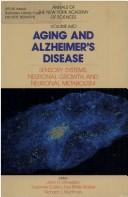| Listing 1 - 10 of 18 | << page >> |
Sort by
|
Dissertation
Abstract | Keywords | Export | Availability | Bookmark
 Loading...
Loading...Choose an application
- Reference Manager
- EndNote
- RefWorks (Direct export to RefWorks)
Book
Year: 1983 Publisher: New York (N.Y.): Wiley
Abstract | Keywords | Export | Availability | Bookmark
 Loading...
Loading...Choose an application
- Reference Manager
- EndNote
- RefWorks (Direct export to RefWorks)
Dissertation
Year: 1988 Publisher: Utrecht s.n.
Abstract | Keywords | Export | Availability | Bookmark
 Loading...
Loading...Choose an application
- Reference Manager
- EndNote
- RefWorks (Direct export to RefWorks)
Phosphoprotein Phosphatases --- Nerve Growth Factors --- Neurons --- Nerve Regeneration --- metabolism --- pharmacology
Book
ISBN: 9529009011 Year: 1989 Publisher: Helsinki s.n.
Abstract | Keywords | Export | Availability | Bookmark
 Loading...
Loading...Choose an application
- Reference Manager
- EndNote
- RefWorks (Direct export to RefWorks)
Nerve Growth Factors --- Ganglia, Sympathetic --- Nerve Fibers --- immunology --- cytology --- physiology
Dissertation
Year: 1984 Publisher: Liège : Université de Liège. Faculté de médecine (ULg). Département de clinique et pathologie médicales,
Abstract | Keywords | Export | Availability | Bookmark
 Loading...
Loading...Choose an application
- Reference Manager
- EndNote
- RefWorks (Direct export to RefWorks)
CELL DIFFERENTIATION --- NEURONS --- CELLS, CULTURED --- NERVE GROWTH FACTORS
Dissertation
Year: 1995 Publisher: [s. l. : chez l'auteur],
Abstract | Keywords | Export | Availability | Bookmark
 Loading...
Loading...Choose an application
- Reference Manager
- EndNote
- RefWorks (Direct export to RefWorks)
ACOUSTIC NERVE --- NEURONS --- NERVE REGENERATION --- GROWTH SUBSTANCES --- NERVE GROWTH FACTORS

ISBN: 0897667255 Year: 1991 Publisher: New York, NY : New York Academy of Sciences,
Abstract | Keywords | Export | Availability | Bookmark
 Loading...
Loading...Choose an application
- Reference Manager
- EndNote
- RefWorks (Direct export to RefWorks)
AGING --- ALZHEIMER DISEASE --- AMYLOID --- NERVE GROWTH FACTORS --- NEURONS --- OLFACTORY NERVE --- PHYSIOLOGY --- PHYSIOPATHOLOGY --- METABOLISM --- CONGRESSES
Dissertation
Year: 1991 Publisher: [s. l. : chez l'auteur],
Abstract | Keywords | Export | Availability | Bookmark
 Loading...
Loading...Choose an application
- Reference Manager
- EndNote
- RefWorks (Direct export to RefWorks)
LABYRINTH --- COCHLEA --- ORGAN OF CORTI --- HAIR CELLS --- SPIRAL GANGLION --- NERVE GROWTH FACTORS --- CELLS, CULTURED --- RATS --- EMBRYOLOGY
Book
Year: 2009 Publisher: Bruxelles: UCL,
Abstract | Keywords | Export | Availability | Bookmark
 Loading...
Loading...Choose an application
- Reference Manager
- EndNote
- RefWorks (Direct export to RefWorks)
Background: Ethanol exerts its action on neurons through several mechanisms. Because of its small size, ethanol is not a very specific ligand. This characteristic may explain the low specificity of the effects of ethanol.
Methods: Given the extent of my thesis subject, my review was limited to articles published between 2000 and 2009. this examination is based on the contents of synthesis articles published in 2008.
Results: Ethanol alters the fluidity of neuronal membranes. This effect is offset by the homeostatic mechanisms that restore the initial rigidity. Upon the discontinuation of a chronic consumption of ethanol, a rigidity excess of neuronal membranes can be observed. Ethanol also modifies the activity if neurotransmitters, neurotrophins and neurosteroids. These effects may be the cause f acute exposure, chronic exposure of withdrawal.
Conclusions : Ethanol acts primarily by modifying synaptic transmission within the central nervous system. This change involves in particular several neurotransmitters: glutamate, GABA, dopamine, adenosine, serotonin, endogenous opioids, neuropeptides and endocannabinoids. Many of these neurotransmitters are considered as potential targets for the pharmacological treatment of alcoholism Contexte: L’éthanol exerce son action sur les neurones par l’intermédiaire de nombreux mécanismes. Du fait de sa petite taille, l’éthanol ne constitue pas un ligand très spécifique. Cette caractéristique peut expliquer la faible spécificité des effets de l’éthanol.
Méthodes : Au regard de l’étendue de mon sujet de mémoire, je me suis limitée à la recherche d’articles publiés entre 2000 et 2009. Cette recherche a été basée sur le contenu d’articles de synthèse publiés en 2008.
Résultats : L’éthanol modifie la fluidité des membranes neuronales. Cet effet est compensé par les mécanismes homéostatiques qui rétablissent la rigidité initiale. Lors de l’arrêt d’une consommation chronique d’éthanol, on observe un excès de rigidité des membranes neuronales. L’éthanol modifie également l’activité des neurotransmetteurs, des neurotrophines et des neurostéroïdes. Ces effets peuvent être la cause d’une exposition aiguë, d’une exposition chronique ou d’un sevrage.
Conclusions :L’éthanol agit principalement en modifiant la transmission synaptique au niveau du système nerveux central. Cette modification implique particulièrement plusieurs neurotransmetteurs : le glutamate, le GABA, la dopamine, l’adénosine, la sérotonine, les opioïdes endogènes, les neuropeptides et les endocannabinoïdes. La plupart de ces neurotransmetteurs sont considérés comme étant des cibles potentielles pour le traitement pharmacologique de l’alcoolisme
Book
ISBN: 0948601078 9780948601071 Year: 1987 Volume: 132 Publisher: Cambridge: Company of biologists,
Abstract | Keywords | Export | Availability | Bookmark
 Loading...
Loading...Choose an application
- Reference Manager
- EndNote
- RefWorks (Direct export to RefWorks)
Animal psychology and neurophysiology --- Neurons --- Nerve Regeneration --- Nerve Growth Factors --- growth and development --- Nerve Growth Factors. --- Nerve Regeneration. --- Neurons. --- Nerve Cells --- Cell, Nerve --- Cells, Nerve --- Nerve Cell --- Neuron --- Nerve Regenerations --- Regeneration, Nerve --- Regenerations, Nerve --- Nerve Transfer --- Growth-Associated Proteins, Neuronal --- Neuronal Growth-Associated Proteins --- Neuronotrophic Factors --- Neurotrophic Protein --- Neurotrophic Proteins --- Proteins, Neuronal Growth-Associated --- Neurite Outgrowth Factors --- Neurotrophic Factors --- Neurotrophins --- Factors, Nerve Growth --- Factors, Neurite Outgrowth --- Factors, Neuronotrophic --- Factors, Neurotrophic --- Growth Associated Proteins, Neuronal --- Neuronal Growth Associated Proteins --- Outgrowth Factors, Neurite --- Neurites --- NERVE GROWTH FACTORS --- NERVE REGENERATION --- NEURONS --- Growth and development --- Nerve growth factors --- Nerve regeneration --- Neurons - growth and development - congresses --- Nerve Regeneration - congresses --- Nerve Growth Factors - congresses
| Listing 1 - 10 of 18 | << page >> |
Sort by
|

 Search
Search Feedback
Feedback About UniCat
About UniCat  Help
Help News
News